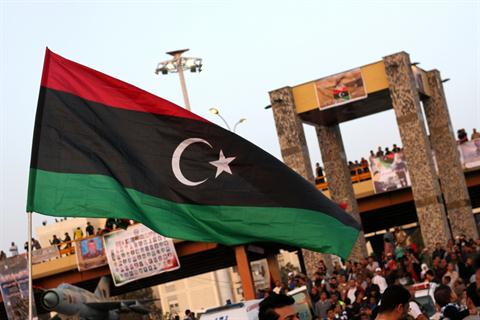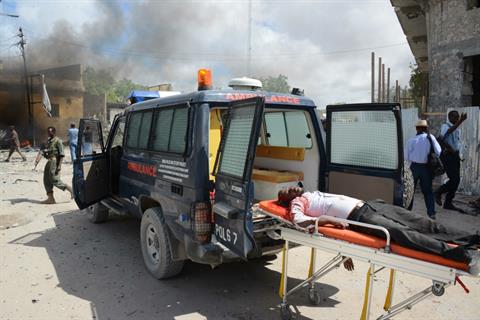
(AFP Photo)
Foreign ministry officials met with families of kidnapped Egyptians in Libya Monday and assured them the continuity of efforts to release them.
Minister’s assistant Yasser Reda reaffirmed that the authorities are exerting the “maximum efforts in this crisis, despite complications,” according to the ministry’s statement.
Earlier this month, 20 Egyptians, all of them Christian, were kidnapped in two separate incidents.
Ten more Egyptians went missing in Libya near the city of Beni Walid, according to their families in Egypt.
A jihadi website circulated photos last week of kidnapped Christians, allegedly released by the Islamic State’s branch in Libya. It is still unclear whether the captives are the Coptic Egyptians who went missing in Libya earlier this month.
Reda presented the latest communications made by the crisis cell with Libyan official and unofficial sides, including communications with the Libyan government, security agencies and tribal leaders.
A “crisis cell” to “secure the lives of Egyptians kidnapped in Libya” and work on their release was formed earlier this month, upon the orders of President Abdel Fattah Al-Sisi. The crisis cell includes representatives of all ministries and security apparatuses engaging in contact with concerned Libyan parties.
He called on the families of the kidnapped Egyptians to be patient at this “critical stage” and advised their relatives who live in areas where there are security tensions to move to safer places in Libya, or to go back to Egypt.
He highlighted the “very complicated conditions in Libya”, “the deteriorating security situation” and the absence of “Egyptian presence on the ground.” However, he asserted that the crisis cell will not stop work and communications “until clarifying the case”.
Libya is currently witnessing ongoing battles between the government and armed militias who are battling for territory and control, leaving scores dead and wounded. This has led to the collapse of the democratic transition process after the overthrow of Muammar Gaddafi’s regime in 2011.


